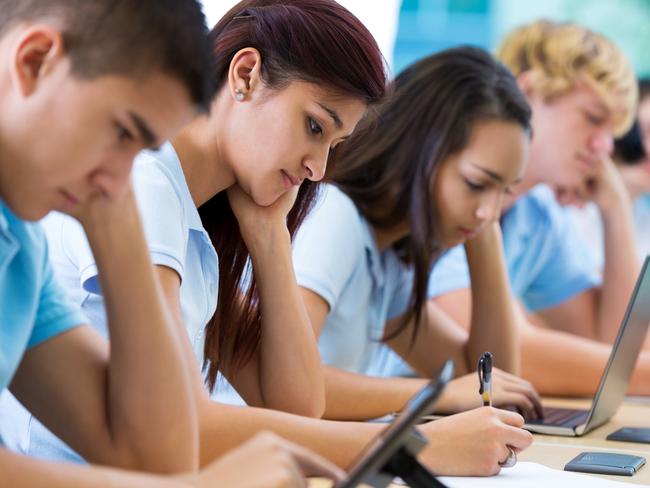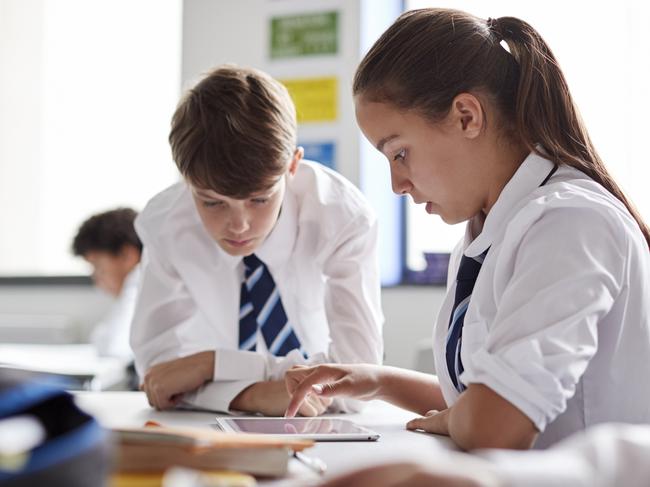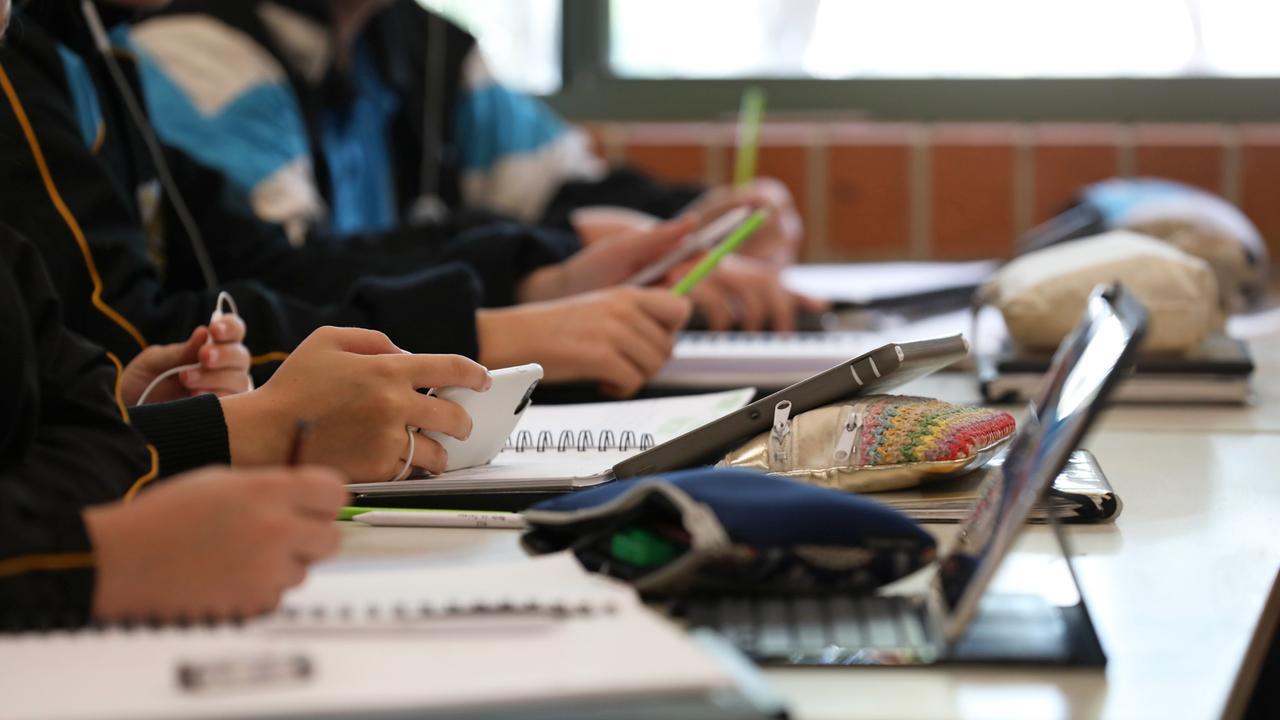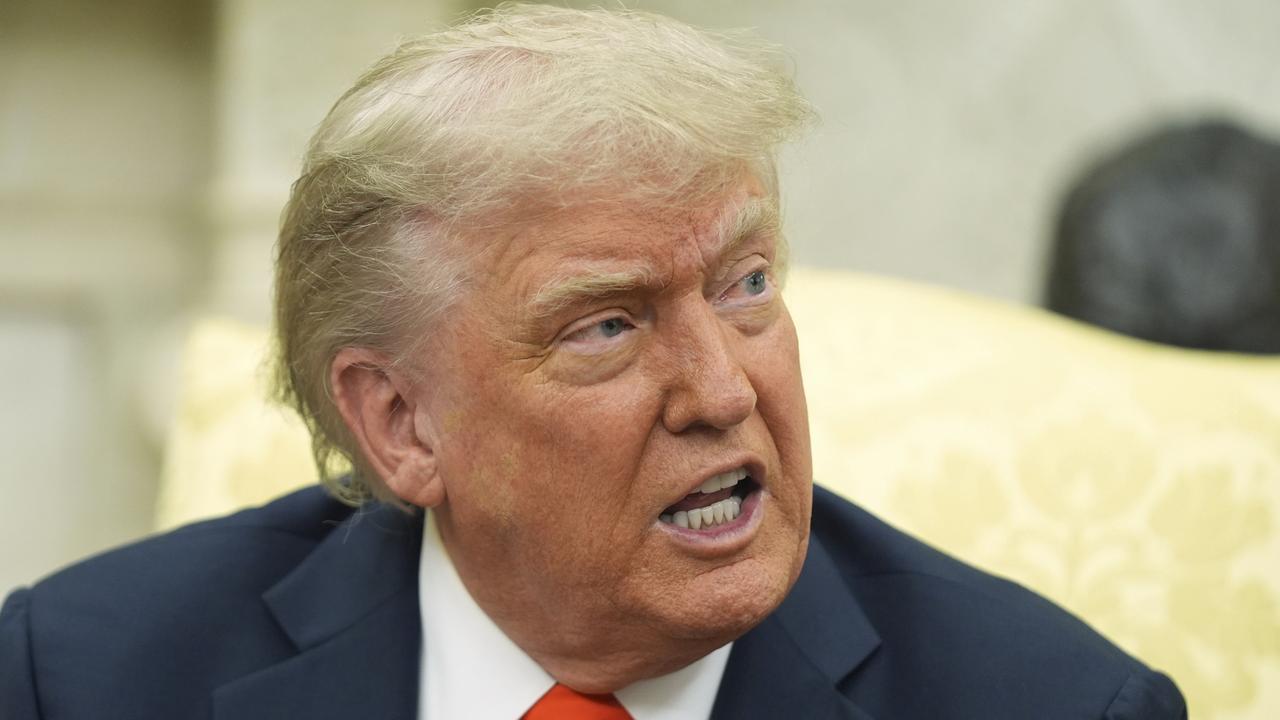Victorian students say their voice is the key to fixing ‘strained’ education system in new report
Almost 90 Victorian students are urging the state government to listen to their concerns, after a new report detailed how they’re struggling to cope with an education system under “considerable pressure”.

Education
Don't miss out on the headlines from Education. Followed categories will be added to My News.
Teacher shortages and assessments that are “no longer fit for purpose” are among the big issues affecting Victorian students’ engagement at school as they try to cope in an education system that’s “under strain”, a new report has revealed.
The Victorian Students Representative Council’s (VicSRC) 2024 Congress Report is urging the state’s leaders to provide students with more opportunities to have their voices heard, with groups, including the Australian Education Union and Parents Victoria, backing their calls.
The report’s release comes after almost 90 students from 33 Victorian secondary schools united to discuss their concerns about learning in a system that’s under a “considerable amount of pressure”.

Following their feedback, the state’s peak student body came up with 22 recommendations to fix their struggling education sector, suggesting student voice could be the “key to reform”.
High school student Oskar was one student who provided feedback, with teacher shortages being his main concern.
“Teachers are not just educators, they are mentors in young peoples lives. The guidance and support they provide help shape young people,” he said.
Fellow student Ivy said those who enjoyed creative subjects were missing out on classes because there were often times there were no elective teachers available.
She also said there’s been an increase in students experiencing racial discrimination and slurs in the schoolyard, with teachers ill-equipped to deal with the issue.
“When this (behaviour) is not addressed, it’s making the issue worse, it’s making students feel like this is just how things are at school and that’s not what we want,” she said.
Another student, Kevin, said the emphasis schools placed on exams was driving poor student mental health.
“(End of year exams) place a lot of stress on students, which are taken under timed conditions and typically don’t reflect a holistic view of the students,” he said.
“Assessments should be focused on an overall view of the student, including things they might do that aren’t purely academic and have a more holistic view that isn’t all (based) on a short-term test.”
The VicSRC said other areas requiring urgent systematic reform were in the mental health and accessibility space, as well as prioritising equity.

Parents Victorian chief executive Gail McHardy said student voice and agency was an effective way for the state’s leaders to “build strong solutions to their concerns”.
“Supporting teachers with the resources they need to be champions of student voice (is one way we can address students’ concerns),” she said.
“When it’s done right, it’s a great way to boost engagement and outcomes and reduce the burden on teachers as needs subside.”
Meanwhile, Australian Education Union Victorian Branch president Justin Mullaly said VicSRC’s recommendations “go to the heart of many of the concerns” held by education staff.
“The Victorian government and Department of Education need to listen and act now, ahead of the state budget, to further promote student voice, and provide additional funding and resources to school staff for improved student learning, wellbeing, and inclusion,” he said.




